#artificial intelligence and machine learning meaning
Explore tagged Tumblr posts
Photo
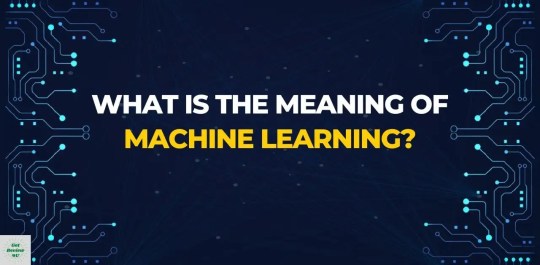
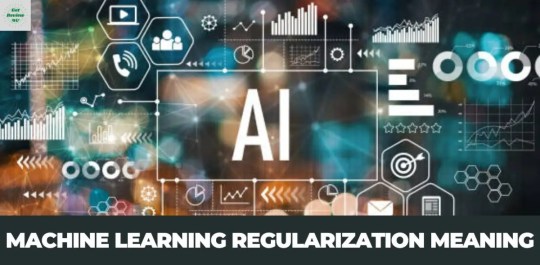
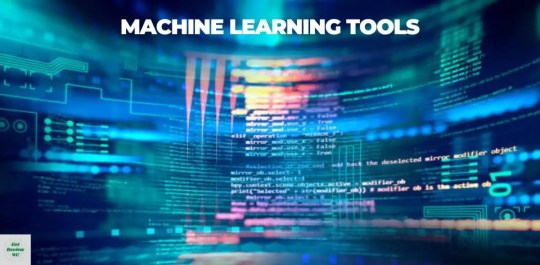
(via All you need to know about Machine Learning | meaning, tool, technique, math, algorithm, AI, accuracy, …etc)
#machine learning algorithm meaning#how does machine learning#regularization machine learning meaning#mean in machine learning#machine learning as a service#what is machine learning model#statistics for machine learning#tools of machine learning#machine learning tool#machine learning technique#machine learning math#artificial intelligence and machine learning meaning#ai machine learning meaning#what is machine learning in data science#types of machine learning algorithms#3 types of machine learning#different types of machine learning algorithms#regularization machine learning#machine learning regularization#regularization machine learning definition
0 notes
Text
Clarification: Generative AI does not equal all AI
💭 "Artificial Intelligence"
AI is machine learning, deep learning, natural language processing, and more that I'm not smart enough to know. It can be extremely useful in many different fields and technologies. One of my information & emergency management courses described the usage of AI as being a "human centaur". Part human part machine; meaning AI can assist in all the things we already do and supplement our work by doing what we can't.
💭 Examples of AI Benefits
AI can help advance things in all sorts of fields, here are some examples:
Emergency Healthcare & Disaster Risk X
Disaster Response X
Crisis Resilience Management X
Medical Imaging Technology X
Commercial Flying X
Air Traffic Control X
Railroad Transportation X
Ship Transportation X
Geology X
Water Conservation X
Can AI technology be used maliciously? Yeh. Thats a matter of developing ethics and working to teach people how to see red flags just like people see red flags in already existing technology.
AI isn't evil. Its not the insane sentient shit that wants to kill us in movies. And it is not synonymous with generative AI.
💭 Generative AI
Generative AI does use these technologies, but it uses them unethically. Its scraps data from all art, all writing, all videos, all games, all audio anything it's developers give it access to WITHOUT PERMISSION, which is basically free reign over the internet. Sometimes with certain restrictions, often generative AI engineers—who CAN choose to exclude things—may exclude extremist sites or explicit materials usually using black lists.
AI can create images of real individuals without permission, including revenge porn. Create music using someones voice without their permission and then sell that music. It can spread disinformation faster than it can be fact checked, and create false evidence that our court systems are not ready to handle.
AI bros eat it up without question: "it makes art more accessible" , "it'll make entertainment production cheaper" , "its the future, evolve!!!"
💭 AI is not similar to human thinking
When faced with the argument "a human didn't make it" the come back is "AI learns based on already existing information, which is exactly what humans do when producing art! We ALSO learn from others and see thousands of other artworks"
Lets make something clear: generative AI isn't making anything original. It is true that human beings process all the information we come across. We observe that information, learn from it, process it then ADD our own understanding of the world, our unique lived experiences. Through that information collection, understanding, and our own personalities we then create new original things.
💭 Generative AI doesn't create things: it mimics things
Take an analogy:
Consider an infant unable to talk but old enough to engage with their caregivers, some point in between 6-8 months old.
Mom: a bird flaps its wings to fly!!! *makes a flapping motion with arm and hands*
Infant: *giggles and makes a flapping motion with arms and hands*
The infant does not understand what a bird is, what wings are, or the concept of flight. But she still fully mimicked the flapping of the hands and arms because her mother did it first to show her. She doesn't cognitively understand what on earth any of it means, but she was still able to do it.
In the same way, generative AI is the infant that copies what humans have done— mimicry. Without understanding anything about the works it has stolen.
Its not original, it doesn't have a world view, it doesn't understand emotions that go into the different work it is stealing, it's creations have no meaning, it doesn't have any motivation to create things it only does so because it was told to.
Why read a book someone isn't even bothered to write?
Related videos I find worth a watch
ChatGPT's Huge Problem by Kyle Hill (we don't understand how AI works)
Criticism of Shadiversity's "AI Love Letter" by DeviantRahll
AI Is Ruining the Internet by Drew Gooden
AI vs The Law by Legal Eagle (AI & US Copyright)
AI Voices by Tyler Chou (Short, flash warning)
Dead Internet Theory by Kyle Hill
-Dyslexia, not audio proof read-
#ai#anti ai#generative ai#art#writing#ai writing#wrote 95% of this prior to brain stopping sky rocketing#chatgpt#machine learning#youtube#technology#artificial intelligence#people complain about us being#luddite#but nah i dont find mimicking to be real creations#ai isnt the problem#ai is going to develop period#its going to be used period#doesn't mean we need to normalize and accept generative ai
58 notes
·
View notes
Text
Key Differences Between AI and Human Communication: Mechanisms, Intent, and Understanding
The differences between the way an AI communicates and the way a human does are significant, encompassing various aspects such as the underlying mechanisms, intent, adaptability, and the nature of understanding. Here’s a breakdown of key differences:
1. Mechanism of Communication:
AI: AI communication is based on algorithms, data processing, and pattern recognition. AI generates responses by analyzing input data, applying pre-programmed rules, and utilizing machine learning models that have been trained on large datasets. The AI does not understand language in a human sense; instead, it predicts likely responses based on patterns in the data.
Humans: Human communication is deeply rooted in biological, cognitive, and social processes. Humans use language as a tool for expressing thoughts, emotions, intentions, and experiences. Human communication is inherently tied to understanding and meaning-making, involving both conscious and unconscious processes.
2. Intent and Purpose:
AI: AI lacks true intent or purpose. It responds to input based on programming and training data, without any underlying motivation or goal beyond fulfilling the tasks it has been designed for. AI does not have desires, beliefs, or personal experiences that inform its communication.
Humans: Human communication is driven by intent and purpose. People communicate to share ideas, express emotions, seek information, build relationships, and achieve specific goals. Human communication is often nuanced, influenced by context, and shaped by personal experiences and social dynamics.
3. Understanding and Meaning:
AI: AI processes language at a syntactic and statistical level. It can identify patterns, generate coherent responses, and even mimic certain aspects of human communication, but it does not truly understand the meaning of the words it uses. AI lacks consciousness, self-awareness, and the ability to grasp abstract concepts in the way humans do.
Humans: Humans understand language semantically and contextually. They interpret meaning based on personal experience, cultural background, emotional state, and the context of the conversation. Human communication involves deep understanding, empathy, and the ability to infer meaning beyond the literal words spoken.
4. Adaptability and Learning:
AI: AI can adapt its communication style based on data and feedback, but this adaptability is limited to the parameters set by its algorithms and the data it has been trained on. AI can learn from new data, but it does so without understanding the implications of that data in a broader context.
Humans: Humans are highly adaptable communicators. They can adjust their language, tone, and approach based on the situation, the audience, and the emotional dynamics of the interaction. Humans learn not just from direct feedback but also from social and cultural experiences, emotional cues, and abstract reasoning.
5. Creativity and Innovation:
AI: AI can generate creative outputs, such as writing poems or composing music, by recombining existing patterns in novel ways. However, this creativity is constrained by the data it has been trained on and lacks the originality that comes from human creativity, which is often driven by personal experience, intuition, and a desire for expression.
Humans: Human creativity in communication is driven by a complex interplay of emotions, experiences, imagination, and intent. Humans can innovate in language, create new metaphors, and use language to express unique personal and cultural identities. Human creativity is often spontaneous and deeply tied to individual and collective experiences.
6. Emotional Engagement:
AI: AI can simulate emotional engagement by recognizing and responding to emotional cues in language, but it does not experience emotions. Its responses are based on patterns learned from data, without any true emotional understanding or empathy.
Humans: Human communication is inherently emotional. People express and respond to emotions in nuanced ways, using tone, body language, and context to convey feelings. Empathy, sympathy, and emotional intelligence play a crucial role in human communication, allowing for deep connections and understanding between individuals.
7. Contextual Sensitivity:
AI: AI's sensitivity to context is limited by its training data and algorithms. While it can take some context into account (like the previous messages in a conversation), it may struggle with complex or ambiguous situations, especially if they require a deep understanding of cultural, social, or personal nuances.
Humans: Humans are highly sensitive to context, using it to interpret meaning and guide their communication. They can understand subtext, read between the lines, and adjust their communication based on subtle cues like tone, body language, and shared history with the other person.
8. Ethical and Moral Considerations:
AI: AI lacks an inherent sense of ethics or morality. Its communication is governed by the data it has been trained on and the parameters set by its developers. Any ethical considerations in AI communication come from human-designed rules or guidelines, not from an intrinsic understanding of right or wrong.
Humans: Human communication is deeply influenced by ethical and moral considerations. People often weigh the potential impact of their words on others, considering issues like honesty, fairness, and respect. These considerations are shaped by individual values, cultural norms, and societal expectations.
The key differences between AI and human communication lie in the underlying mechanisms, the presence or absence of intent and understanding, and the role of emotions, creativity, and ethics. While AI can simulate certain aspects of human communication, it fundamentally operates in a different way, lacking the consciousness, experience, and meaning-making processes that characterize human interaction.
#philosophy#epistemology#knowledge#learning#education#chatgpt#metaphysics#ontology#AI Communication#Human Communication#Language Understanding#Natural Language Processing#Machine Learning#Cognitive Science#Artificial Intelligence#Emotional Intelligence#Ethics in AI#Language and Meaning#Human-AI Interaction#Contextual Sensitivity#Creativity in Communication#Intent in Communication#Pattern Recognition
2 notes
·
View notes
Text
Statistical Tools
Daily writing promptWhat was the last thing you searched for online? Why were you looking for it?View all responses Checking which has been my most recent search on Google, I found that I asked for papers, published in the last 5 years, that used a Montecarlo method to check the reliability of a mathematical method to calculate a team’s efficacy. Photo by Andrea Piacquadio on Pexels.com I was…

View On WordPress
#Adjusted R-Squared#Agile#AI#AIC#Akaike Information Criterion#Akaike Information Criterion (AIC)#Algorithm#algorithm design#Analysis#Artificial Intelligence#Bayesian Information Criterion#Bayesian Information Criterion (BIC)#BIC#Business#Coaching#consulting#Cross-Validation#dailyprompt#dailyprompt-2043#Goodness of Fit#Hypothesis Testing#inputs#Machine Learning#Mathematical Algorithm#Mathematics#Mean Squared Error#ML#Model Selection#Monte Carlo#Monte Carlo Methods
2 notes
·
View notes
Text

Are you a graduate looking to improve your skills and upgrade your career in the IT field? For a safe and protected career, select the courses that suit your necessary skills. Explore the list of IT-related courses for graduates and choose the one that matches with your career goals.
In this blog, we will discuss the top professional IT courses that you can consider taking after graduation to stay ahead in the competitive job sector for a successful professional path in the IT field.
#digital marketing#artificial intelligence#machine learning#programming#python#software testing#full stack web development#mobile app development#mean stack development services#softwaretraining#ui ux design#user interface#itjobs#big data
0 notes
Text
There is no such thing as AI.
How to help the non technical and less online people in your life navigate the latest techbro grift.
I've seen other people say stuff to this effect but it's worth reiterating. Today in class, my professor was talking about a news article where a celebrity's likeness was used in an ai image without their permission. Then she mentioned a guest lecture about how AI is going to help finance professionals. Then I pointed out, those two things aren't really related.
The term AI is being used to obfuscate details about multiple semi-related technologies.
Traditionally in sci-fi, AI means artificial general intelligence like Data from star trek, or the terminator. This, I shouldn't need to say, doesn't exist. Techbros use the term AI to trick investors into funding their projects. It's largely a grift.
What is the term AI being used to obfuscate?
If you want to help the less online and less tech literate people in your life navigate the hype around AI, the best way to do it is to encourage them to change their language around AI topics.
By calling these technologies what they really are, and encouraging the people around us to know the real names, we can help lift the veil, kill the hype, and keep people safe from scams. Here are some starting points, which I am just pulling from Wikipedia. I'd highly encourage you to do your own research.
Machine learning (ML): is an umbrella term for solving problems for which development of algorithms by human programmers would be cost-prohibitive, and instead the problems are solved by helping machines "discover" their "own" algorithms, without needing to be explicitly told what to do by any human-developed algorithms. (This is the basis of most technologically people call AI)
Language model: (LM or LLM) is a probabilistic model of a natural language that can generate probabilities of a series of words, based on text corpora in one or multiple languages it was trained on. (This would be your ChatGPT.)
Generative adversarial network (GAN): is a class of machine learning framework and a prominent framework for approaching generative AI. In a GAN, two neural networks contest with each other in the form of a zero-sum game, where one agent's gain is another agent's loss. (This is the source of some AI images and deepfakes.)
Diffusion Models: Models that generate the probability distribution of a given dataset. In image generation, a neural network is trained to denoise images with added gaussian noise by learning to remove the noise. After the training is complete, it can then be used for image generation by starting with a random noise image and denoise that. (This is the more common technology behind AI images, including Dall-E and Stable Diffusion. I added this one to the post after as it was brought to my attention it is now more common than GANs.)
I know these terms are more technical, but they are also more accurate, and they can easily be explained in a way non-technical people can understand. The grifters are using language to give this technology its power, so we can use language to take it's power away and let people see it for what it really is.
12K notes
·
View notes
Text
The conversation around AI is going to get away from us quickly because people lack the language to distinguish types of AI--and it's not their fault. Companies love to slap "AI" on anything they believe can pass for something "intelligent" a computer program is doing. And this muddies the waters when people want to talk about AI when the exact same word covers a wide umbrella and they themselves don't know how to qualify the distinctions within.
I'm a software engineer and not a data scientist, so I'm not exactly at the level of domain expert. But I work with data scientists, and I have at least rudimentary college-level knowledge of machine learning and linear algebra from my CS degree. So I want to give some quick guidance.
What is AI? And what is not AI?
So what's the difference between just a computer program, and an "AI" program? Computers can do a lot of smart things, and companies love the idea of calling anything that seems smart enough "AI", but industry-wise the question of "how smart" a program is has nothing to do with whether it is AI.
A regular, non-AI computer program is procedural, and rigidly defined. I could "program" traffic light behavior that essentially goes { if(light === green) { go(); } else { stop();} }. I've told it in simple and rigid terms what condition to check, and how to behave based on that check. (A better program would have a lot more to check for, like signs and road conditions and pedestrians in the street, and those things will still need to be spelled out.)
An AI traffic light behavior is generated by machine-learning, which simplistically is a huge cranking machine of linear algebra which you feed training data into and it "learns" from. By "learning" I mean it's developing a complex and opaque model of parameters to fit the training data (but not over-fit). In this case the training data probably includes thousands of videos of car behavior at traffic intersections. Through parameter tweaking and model adjustment, data scientists will turn this crank over and over adjusting it to create something which, in very opaque terms, has developed a model that will guess the right behavioral output for any future scenario.
A well-trained model would be fed a green light and know to go, and a red light and know to stop, and 'green but there's a kid in the road' and know to stop. A very very well-trained model can probably do this better than my program above, because it has the capacity to be more adaptive than my rigidly-defined thing if the rigidly-defined program is missing some considerations. But if the AI model makes a wrong choice, it is significantly harder to trace down why exactly it did that.
Because again, the reason it's making this decision may be very opaque. It's like engineering a very specific plinko machine which gets tweaked to be very good at taking a road input and giving the right output. But like if that plinko machine contained millions of pegs and none of them necessarily correlated to anything to do with the road. There's possibly no "if green, go, else stop" to look for. (Maybe there is, for traffic light specifically as that is intentionally very simplistic. But a model trained to recognize written numbers for example likely contains no parameters at all that you could map to ideas a human has like "look for a rigid line in the number". The parameters may be all, to humans, meaningless.)
So, that's basics. Here are some categories of things which get called AI:
"AI" which is just genuinely not AI
There's plenty of software that follows a normal, procedural program defined rigidly, with no linear algebra model training, that companies would love to brand as "AI" because it sounds cool.
Something like motion detection/tracking might be sold as artificially intelligent. But under the covers that can be done as simply as "if some range of pixels changes color by a certain amount, flag as motion"
2. AI which IS genuinely AI, but is not the kind of AI everyone is talking about right now
"AI", by which I mean machine learning using linear algebra, is very good at being fed a lot of training data, and then coming up with an ability to go and categorize real information.
The AI technology that looks at cells and determines whether they're cancer or not, that is using this technology. OCR (Optical Character Recognition) is the technology that can take an image of hand-written text and transcribe it. Again, it's using linear algebra, so yes it's AI.
Many other such examples exist, and have been around for quite a good number of years. They share the genre of technology, which is machine learning models, but these are not the Large Language Model Generative AI that is all over the media. Criticizing these would be like criticizing airplanes when you're actually mad at military drones. It's the same "makes fly in the air" technology but their impact is very different.
3. The AI we ARE talking about. "Chat-gpt" type of Generative AI which uses LLMs ("Large Language Models")
If there was one word I wish people would know in all this, it's LLM (Large Language Model). This describes the KIND of machine learning model that Chat-GPT/midjourney/stablediffusion are fueled by. They're so extremely powerfully trained on human language that they can take an input of conversational language and create a predictive output that is human coherent. (I am less certain what additional technology fuels art-creation, specifically, but considering the AI art generation has risen hand-in-hand with the advent of powerful LLM, I'm at least confident in saying it is still corely LLM).
This technology isn't exactly brand new (predictive text has been using it, but more like the mostly innocent and much less successful older sibling of some celebrity, who no one really thinks about.) But the scale and power of LLM-based AI technology is what is new with Chat-GPT.
This is the generative AI, and even better, the large language model generative AI.
(Data scientists, feel free to add on or correct anything.)
3K notes
·
View notes
Text
Machine Learning Algorithms for Beginners with Popular Python Codes | Machine Learning Certifications | USAII®
Create your cognizance of elementary machine learning with this beginner's guide, featuring popular algorithms and code examples in Python.
Read more: https://bit.ly/3p3P1uW
Machine learning algorithms, Python Codes, python programming, Supervised learning algorithms, Unsupervised learning algorithms, Reinforcement learning algorithms, machine learning libraries, Python, Linear Regression, K-means clustering, Deep neural networks, supervised and unsupervised learning, linear regression in machine learning, k means clustering algorithm, K means clustering python code
#Machine learning algorithms#machine learning libraries#K means clustering#Artificial Intelligence Certification#ai career#best AI ML certifications
0 notes
Text
“The machines we have now, they’re not conscious,” he says. “When one person teaches another person, that is an interaction between consciousnesses.” Meanwhile, AI models are trained by toggling so-called “weights” or the strength of connections between different variables in the model, in order to get a desired output. “It would be a real mistake to think that when you’re teaching a child, all you are doing is adjusting the weights in a network.”
Chiang’s main objection, a writerly one, is with the words we choose to describe all this. Anthropomorphic language such as “learn”, “understand”, “know” and personal pronouns such as “I” that AI engineers and journalists project on to chatbots such as ChatGPT create an illusion. This hasty shorthand pushes all of us, he says — even those intimately familiar with how these systems work — towards seeing sparks of sentience in AI tools, where there are none.
“There was an exchange on Twitter a while back where someone said, ‘What is artificial intelligence?’ And someone else said, ‘A poor choice of words in 1954’,” he says. “And, you know, they’re right. I think that if we had chosen a different phrase for it, back in the ’50s, we might have avoided a lot of the confusion that we’re having now.”
So if he had to invent a term, what would it be? His answer is instant: applied statistics.
“It’s genuinely amazing that . . . these sorts of things can be extracted from a statistical analysis of a large body of text,” he says. But, in his view, that doesn’t make the tools intelligent. Applied statistics is a far more precise descriptor, “but no one wants to use that term, because it’s not as sexy”.
[...]
Given his fascination with the relationship between language and intelligence, I’m particularly curious about his views on AI writing, the type of text produced by the likes of ChatGPT. How, I ask, will machine-generated words change the type of writing we both do? For the first time in our conversation, I see a flash of irritation. “Do they write things that speak to people? I mean, has there been any ChatGPT-generated essay that actually spoke to people?” he says.
Chiang’s view is that large language models (or LLMs), the technology underlying chatbots such as ChatGPT and Google’s Bard, are useful mostly for producing filler text that no one necessarily wants to read or write, tasks that anthropologist David Graeber called “bullshit jobs”. AI-generated text is not delightful, but it could perhaps be useful in those certain areas, he concedes.
“But the fact that LLMs are able to do some of that — that’s not exactly a resounding endorsement of their abilities,” he says. “That’s more a statement about how much bullshit we are required to generate and deal with in our daily lives.”
5K notes
·
View notes
Text
Book recs: Queer science fiction, part 1
There is a lot of queer sf out there, and I read a lot of sf. When I started working on this list, I quickly realized it was impossible to include all that I've read and enjoyed in one single rec post. Thus, this is the first of so far three queer sci-fi book rec posts.
A note: queer here does not necessarily mean "guarantee of an f/f or m/m ship with a happy ending", but rather simply a significant presence of queerness. Some of the books feature no romance but has a same gender attracted/trans/a-spectrum lead, or features an m/f relationship with bisexual, trans or aro/ace characters, or simply features a world-building which is heavily queer inclusive in ways that don't always compare to our own ideas of sexuality and gender. I have however disqualified works where the only queer presence is along the lines of "gay best friend" or a blink and you'll miss it confirmation that never comes up again.

Previous book rec posts:
Really cool fantasy worldbuilding, really cool sci-fi worldbuilding, dark sapphic romances, mermaid books, vampire books, many worlds: portal fantasies, many worlds: alternate timelines, robots and artificial intelligences, post- and transhumanism, alien intelligences
For more details on the books, continue under the readmore. Titles marked with * are my personal favorites. And as always, feel free to share your own recs in the notes!

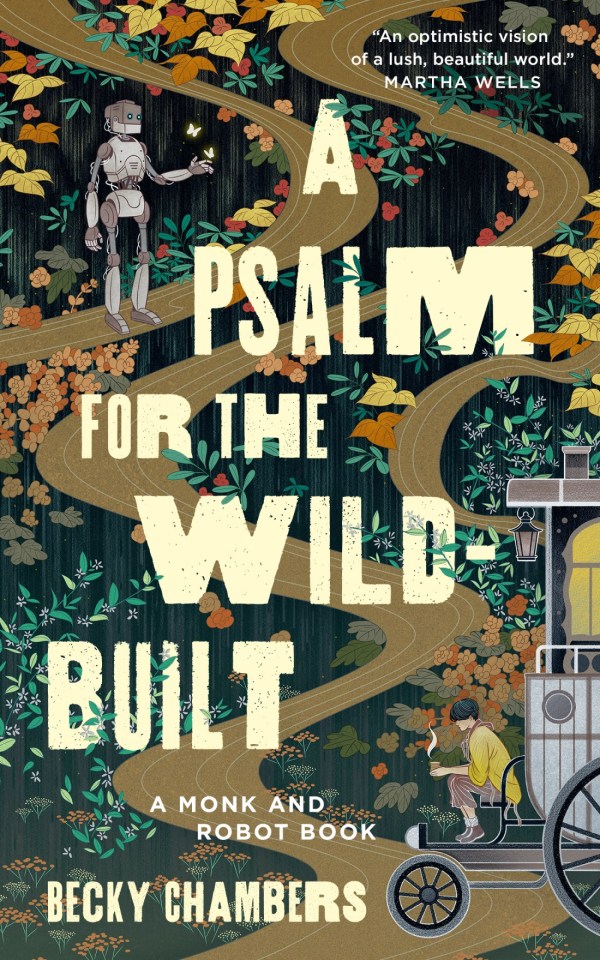
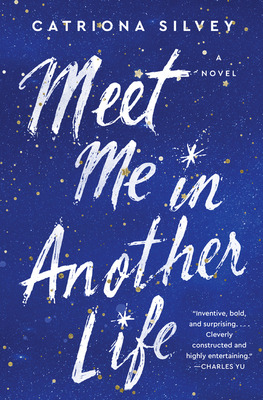
The Light Brigade by Kameron Hurley*
Dietz is a soldier in the war between Earth and Mars - to travel to the battle front, she and her fellow soldiers are broken down into light to be able to quickly travel across space. But something keeps going wrong with Dietz's travels; her memories don't match up with the mission briefs, as she experiences time itself turning in on itself. Is she going mad? Or are the things she's learning skipping through time the truth - and the war that's stealing her life the lie? A mindfuck of a book that's scathing in its critique of fascism and war. Features a sapphic lead but no romance.
A Psalm for the Wild-Built (Monk and Robot duology) by Becky Chambers
Novella. Long ago, robots, upon gaining sentience, simply laid down their work and walked into the wilderness. Long after, a tea monk looking for purpose follows after them into the wilds, where they come across one of the robots seeking its own sort of answers. While not plotless, this story focuses more on character and vibes over plot. Also has a nonbinary main character and features conversations on gender between human and robot.
Meet Me In Another Life by Catriona Silvey*
Thora and Santi are strangers, brought together by a coincidence and torn apart just as abruptly when tragedy strikes. But this is neither the first nor the last time they meet - again and again they encounter each other, as friends, lovers, enemies, family, every time recognizing in each other a familiarity no one else carries. But with every new life, a mysterious danger grows ever closer, forcing them to find out the truth of their connection. This is a puzzle-box of a story that goes some entirely unexpected places in a very wild ride, featuring a bisexual co-lead.
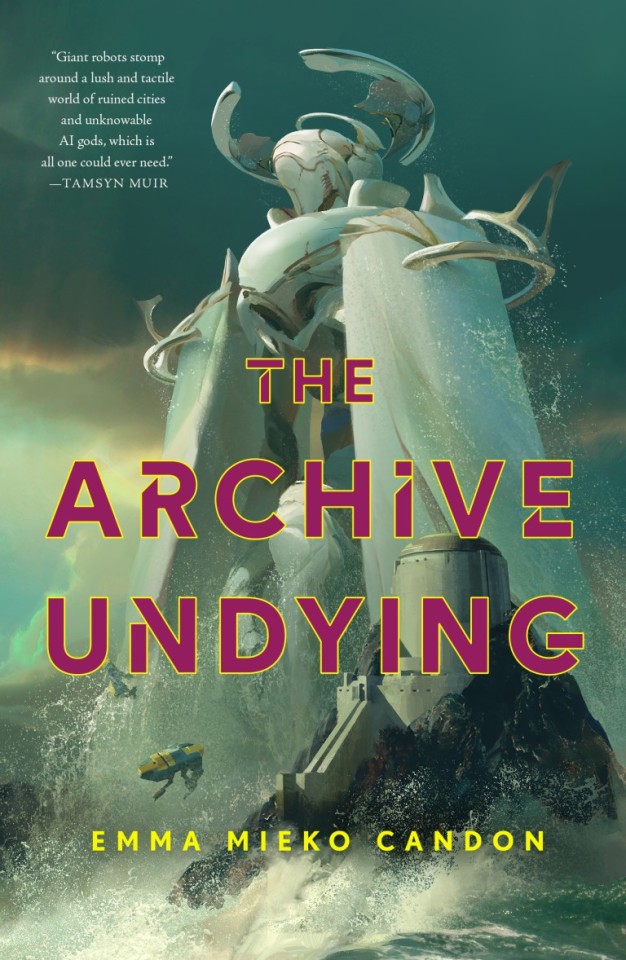
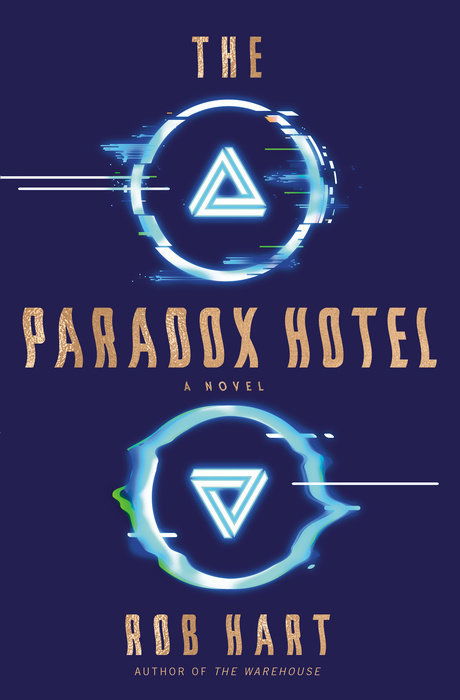
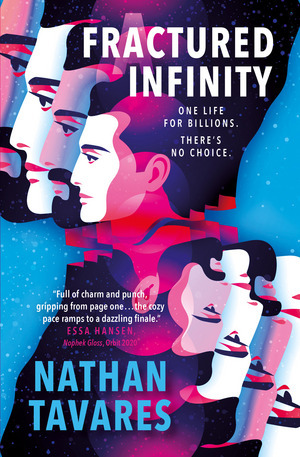
The Archive Undying (The Downworld Sequence) by Emma Mieko Candon
In a world where AI gods sometimes lose their minds and take entire populations down with them, Sunai was the only survivor when his god went down. In the 17 years since, he has wandered on his own, unable to either die or age, drowning his sorrows in drink and men. But his attempts to flee his past comes to a stop as he is forced back into the struggle between man and machine. Featuring some pretty wild world building and narrative techniques, this book will definitely confuse you, but it is worth the experience.
The Paradox Hotel by Rob Hart
January Cole works security at the Paradox Hotel, last stop for tourists heading for the timeport, which allows them to travel to and witness any moment in time. But years of proximity to the timeport has left its damage on January, making her unstuck in time, letting her relive memories of her dead lover even as her sanity slips away bit by bit. As she starts witnessing proof of a horrible crime in the hotel that no one else can see, January must race against her own mind, a killer, and time itself to solve it before it's too late.
A Fractured Infinity by Nathan Tavares
Hayes Figueiredo is a struggling film-maker who wants to finish his documentary, whose life gets turned upside down when handsome physicist Yusuf Hassan enters his life, claiming an alternate version of him is a great inventor who’s sent a mysterious device to their universe. As Hayes gets drawn deeper into the conspiracy - and his feelings for Yusuf intensify - he has to decide just how far he’s prepared to go to win the life and the love he wants. Featuring a very gay and very morally dubious lead, this is a creative and strange read.

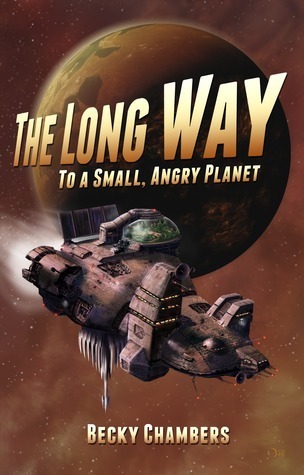
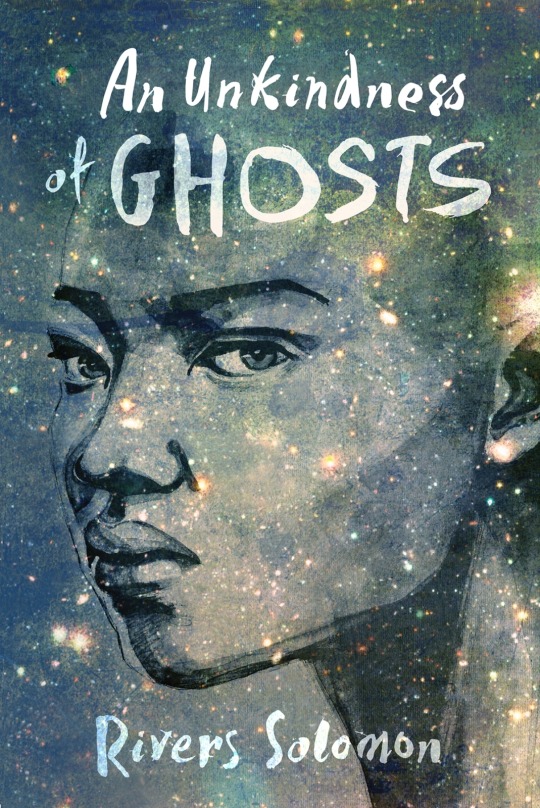
Bridge by Lauren Beukes
When she was little, Bridge and her mother Jo used to play a game - one where they traveled to other worlds, inhabiting the bodies of their other selves. Now Jo is dead, and as Bridge is cleaning out her apartment she finds a strange device: a dreamworm, the very thing that supposedly makes inter-dimensional travel possible. Suddenly faced with the possibility that multiverse travel is real, Bridge is struck by a different question: could her mother still be alive? Scifi spiced with a healthy dose of body horror and some absolutely wild twists, Bridge also features a bisexual lead (however this is a blink and you’ll miss it moment) and a nonbinary co-narrator.
The Long Way to a Small, Angry Planet (Wayfarers series) by Becky Chambers
Rosemary Harper just got a job on the motley crew of the Wayfarer, a spaceship that works with tunneling new wormholes through space. With a past she wants to leave behind, Rosemary is happy to travel the far reaches of the universe with the chaotic crew, but when they land the job of a life time, things suddenly get a lot more dangerous. A bit of a tumblr classic in its day, this is a cozy space opera with an episodic feel and vividly realized characters and cultures. While pretty light on romance and focusing found family, there is a main f/f relationship.
An Unkindness of Ghosts by Rivers Solomon
Life on the lower decks of the generation ship HSS Matilda is hard for Aster, an outcast even among outcasts, trying to survive in a system not dissimilar to the old antebellum South. The ship's leaders have imposed harsh restrictions on their darker skinned people, using them as an oppressed work force as they travel toward their supposed Promised Land. But as Aster finds a link between the death of the ship's sovereign and the suicide of her own mother, she realizes there may be a way off the ship.
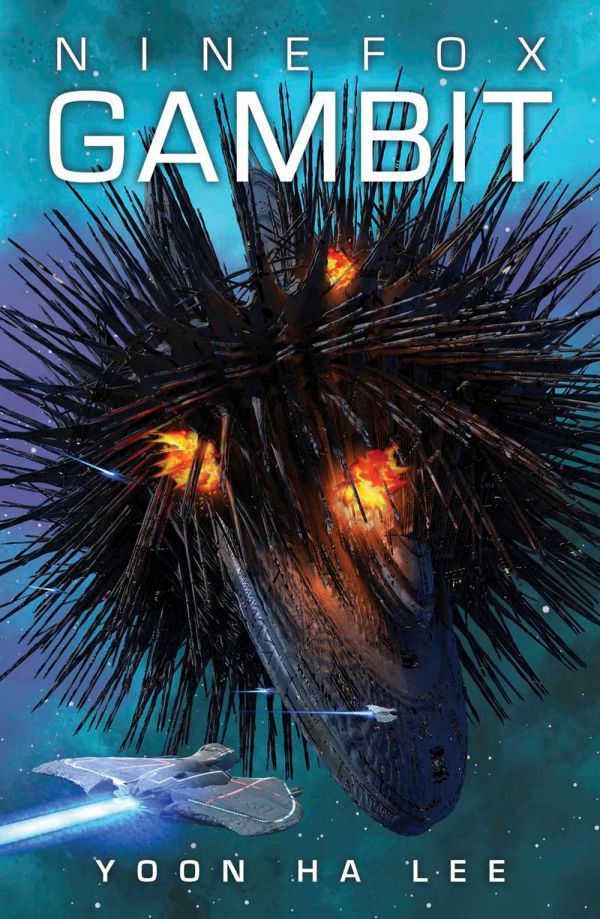
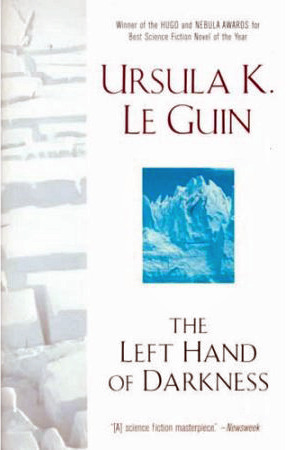
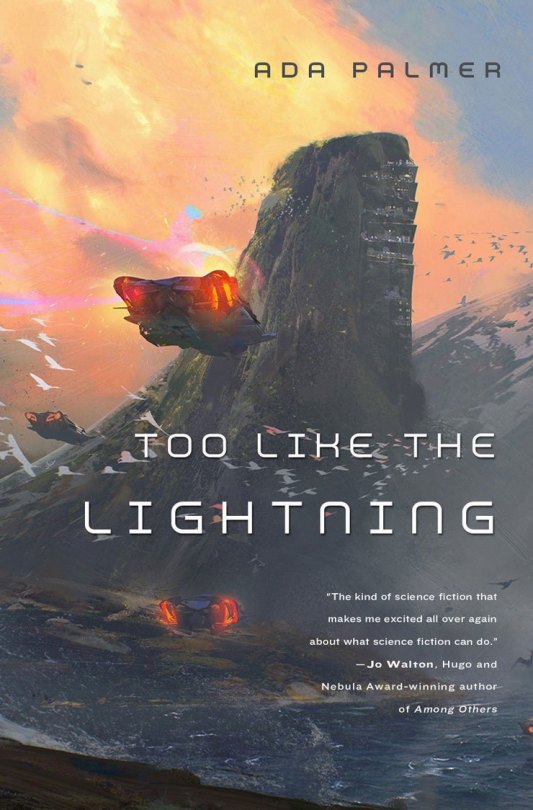
Ninefox Gambit (The Machineries of Empire trilogy) by Yoon Ha Lee*
Military space opera where belief and culture shape the laws of reality, causing all kinds of atrocities as empires do everything in their power to force as many people as possible to conform to their way of life to strengthen their technology and weapons. It’s also very queer, with gay, lesbian and trans major characters, albeit little to no romance.
The Left Hand of Darkness (Hainish Cycle) by Ursula K. Le Guin
1969 classic. Genly Ai is an emissary sent to the planet of Winter, meant to help facilitate Winter's inclusion in a growing intergalactic civilization. But he's unprepared for Winter's citizens, who spend much of their time genderless or switching between genders, making for a culture wildly different from that Genly is used to.
Too Like the Lightning (Terra Ignota series) by Ada Palmer*
Centuries in the future, humanity has deliberatly engineered society to be as utopian as possible, politically, socially, sexually, religiously. Written in an enlightenment style and featuring questions of human nature and whether it’s possible to change it, and what price we’re prepared to pay for peace, this book is simultaneously very heavy and very funny, and written in a very unique style. While still human, the society presented often feels starkly alien.
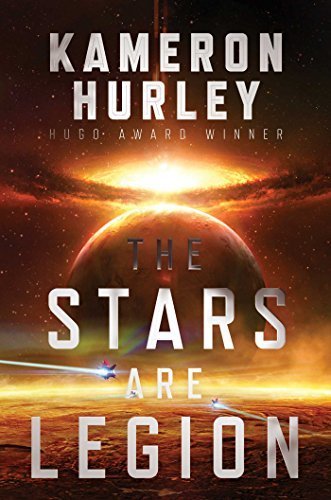
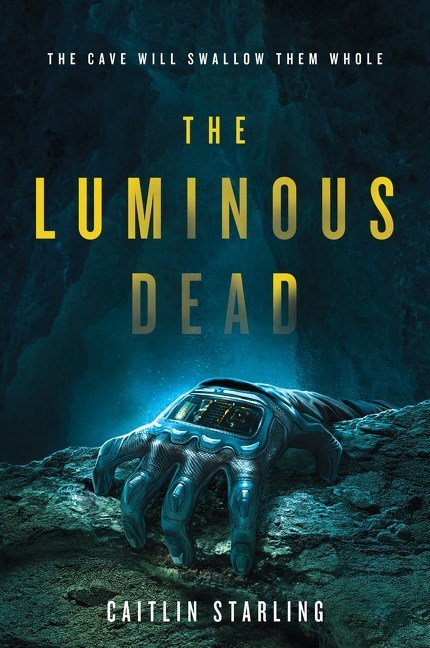
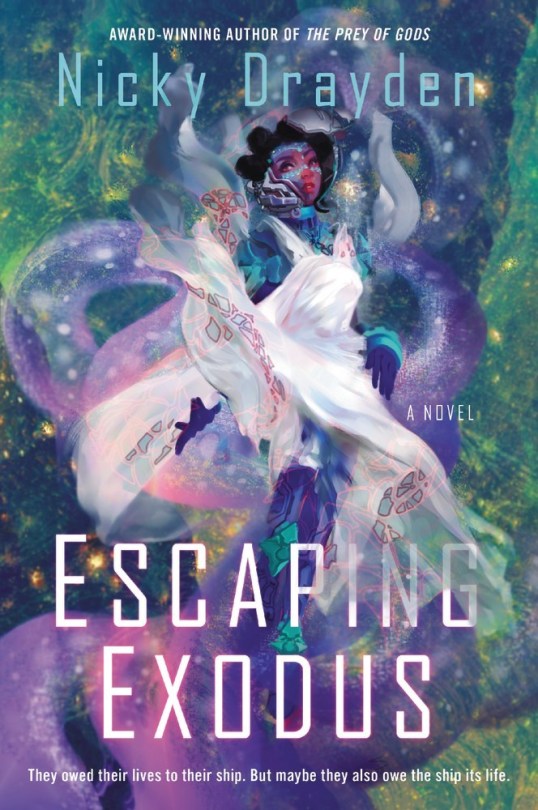
The Stars Are Legion by Kameron Hurley
This book fucked me up when I read it. It’s weird, it’s gross, there’s So Much Viscera, there are literally no men, it has living spaceships and biotech but in the most horrific way imaginable. Had I to categorize it I would call it grimdark military sf. It’s an experience but not necessarily a pleasant one.
The Luminous Dead by Caitlin Starling*
Possibly one of the most unsettling books I’ve ever read, and definitely the most claustrophobic. Gyre, a caver on an alien planet, ventures into the dark and dangerous underground, guided only by a woman who has no compunctions on using and manipulating Gyre as she sees fit to obtain her secretive goals down in the caves.
Escaping Exodus (Escaping Exodus series) by Nicky Drayden
While my feelings on Escaping Exodus were mixed, it cannot be denied that the dynamic between the two leads and the way they go from childhood best friends to enemies on different sides of a class and power struggle is very delicious. It also features some really cool worldbuilding of living, alien generation spaceships and the human culture that has developed inside them.
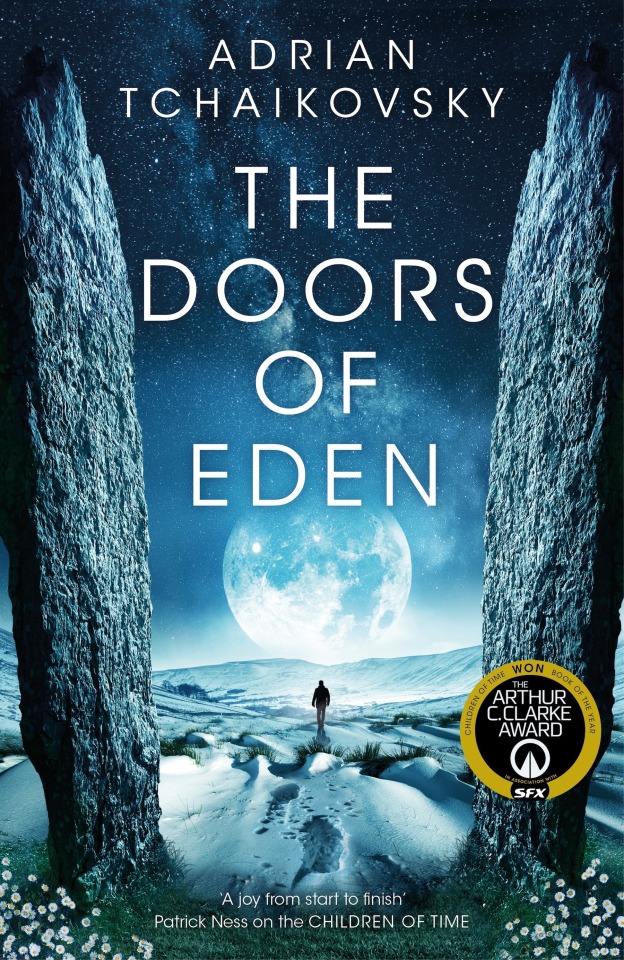
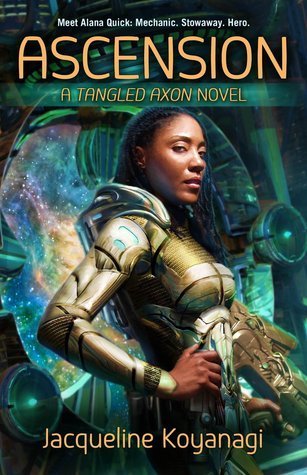
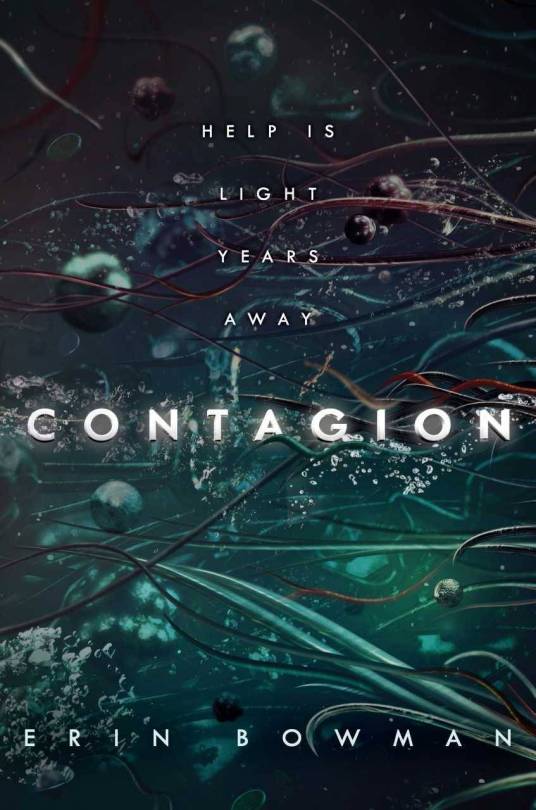
The Doors of Eden by Adrian Tchaikovsky*
The Doors of Eden is something of an experiment in speculative biology, featuring versions of Earth in which various different species were the one to rise to sentience, from dinosaurs to neanderthals. Now, something is threatening the existence of all timelines, dragging multiple different people and species into the struggle, among those a pair of cryptid hunting girlfriends and a transgender scientist.
Ascension by Jacqueline Koyanagi
Ascension follows Alana Quick, an expert Sky Surgeon who stows away on a spaceship in hopes of landing herself a job. But the ship and its crew are in deeper waters than she expected, facing threats emerging from a whole other universe, all of them searching for the same person: Alana’s spiritually enlightened sister. Undeniably a bit of an odd read, Ascension is also very creative and features polyamorous lesbian relationship.
Contagion (Contagion duology) by Erin Bowman*
Young adult. After receiving an SOS, a small crew is sent on a standard search-and-rescue mission. But what they find are not survivors awaiting help, but an abandoned site, full of dead bodies and crawling with something... monstrous. No romance, but features one sapphic co-lead and one who can easily be read as demisexual (however this doesn't show up until book two, which has more romance).
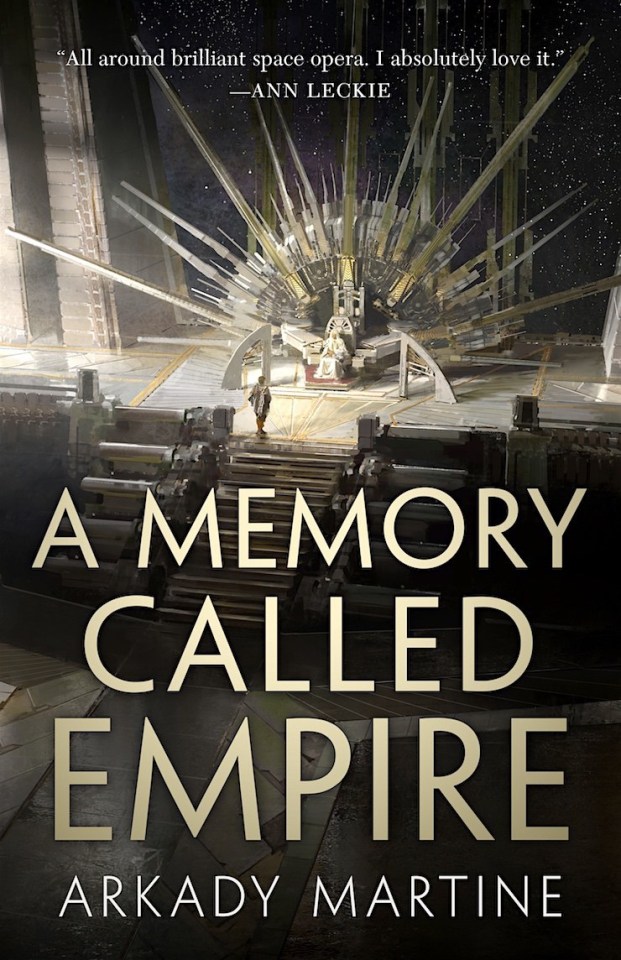
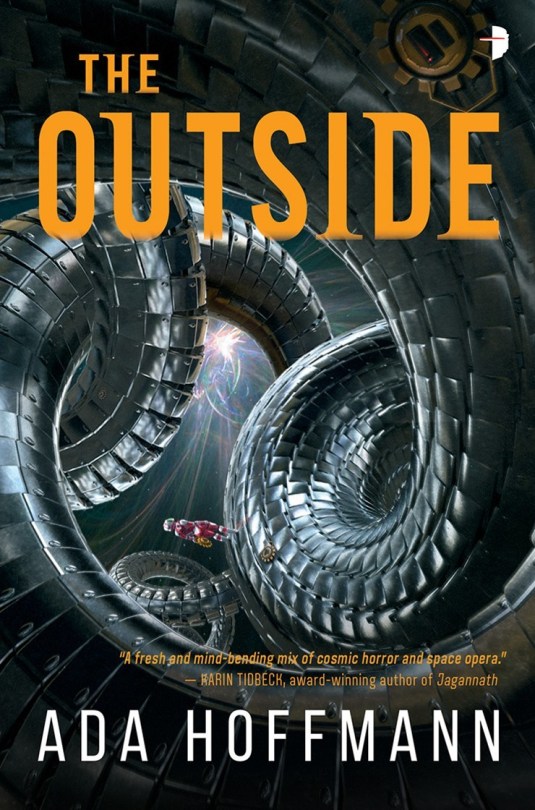
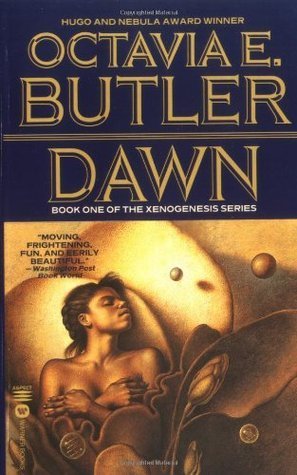
A Memory Called Empire (Texicalaan duology) by Arkady Martine
Mahit Dzmare is an ambassador sent to the center of the multi-system Teixcalaanli Empire, where she discovers that her predecessor has died. Trying to protect her home, an independent mining station, from being taken over by the empire, Mahit struggles to find out the truth of her predecessor's death while carrying the voice of his ghost in her head, guiding her as best he can. Light on the romance but does feature a sapphic relationship.
The Outside (The Outside trilogy) by Ada Hoffman*
AKA the book the put me in an existenial crisis. Souls are real, and they are used to feed AI gods in this lovecraftian inspired scifi where reality is warped and artifical gods stand against real, unfathomable ones. Autistic scientist Yasira is accused of heresy and, to save her eternal soul, is recruited by post-human cybernetic ‘angels’ to help hunt down her own former mentor, who is threatening to tear reality itself apart. Sapphic main character.
Dawn (Xenogenesis trilogy) by Octavia E. Butler*
After a devestating war leaves humanity on the brink of extinction, survivor Lilith finds herself waking up naked and alone in a strange room. She’s been rescued by the Oankali, who have arrived just in time to save the human race. But there’s a price to survival, and it might be humanity itself. Absolutely fucked up I love it I once had to drop the book mid read to stare at the ceiling and exclaim in horror at what was going on. Queer in the sense that the Oankali doesn't follow human ideas of gender and relationships, which is mirrored in their romantic relationships with humans. It is, however, pretty dark, with examinations of agency and consent, so enter with caution.


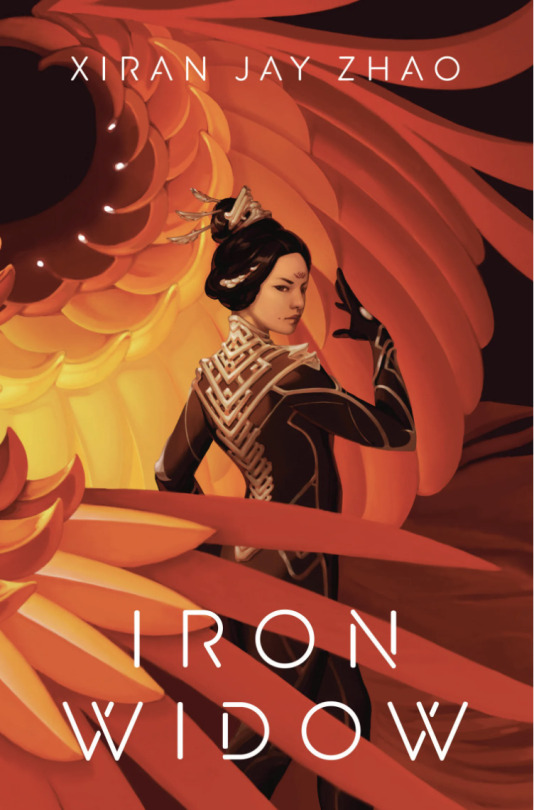
Remnant by Kate Genet
One day, Cass wakes up and finds everyone else is gone. Not dead, just gone, leaving her in a world which nature starts taking back with a dangerous, unnatural speed. But as she tries to survive this new normal, Cass realizes she may not be alone after all - but who else is out there, and are they a threat?
The Scorpion Rules (Prisoners of Peace duology) by Erin Bow*
Young Adult. Featuring a dystopian future in which an AI forcibly keeps world peace by holding the children of world leaders hostage. If anyone attempts to start a war, their child will be executed. Greta is one of these children, kept in a school with others like her. But things start to change one day when a new, less obedient hostage arrives. A unique, slowburn take on the YA dystopian craze, also featuring a bisexual love triangle.
Iron Widow (Iron Widow series) by Xiran Jay Zhao
Young adult. Zetian is a citizen of Huaxia, where mecha aliens are constantly trying to breach the Great Wall. To keep them at bay, couples of men and women pilot so called Chrysalises, giant transforming robots. But the pilots are not equal - the women almost always die, sucked dry by their co-pilots. When Zetian sets herself up to become a concubine-pilot, she does so with the plan to assassinate the male pilot who caused her sister's death. Features a polyamorous main relationship.
Bonus AKA I haven't read these yet but they seem really cool:
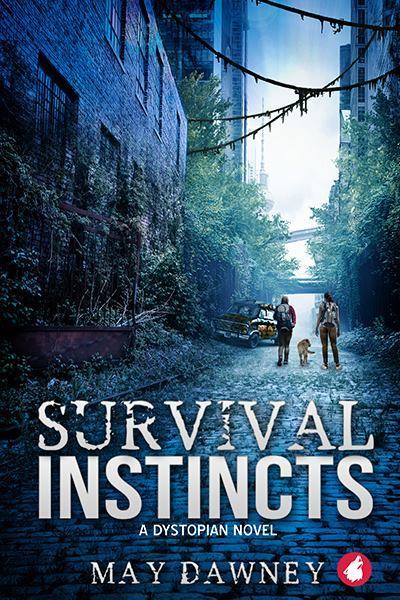
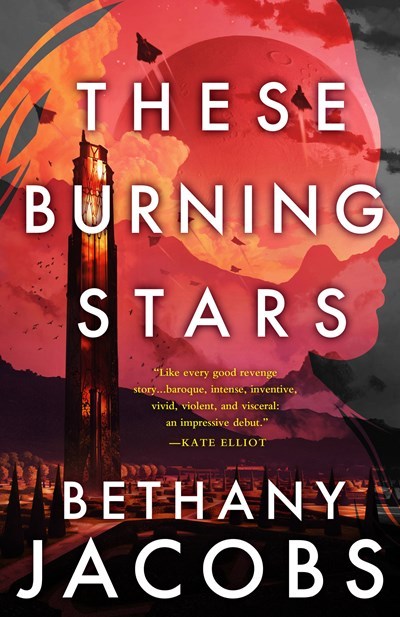
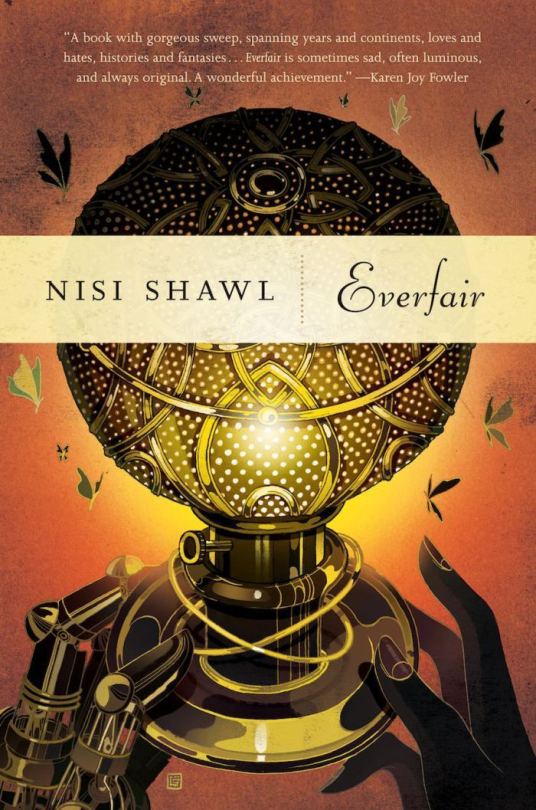
Survival Instincts by May Dawney
Lynn Tanner has been surviving the post-apocalypse alone with only her dog for a long time, trusting no one. But when she's forced to travel the dangerous remains of New York City alongside another woman, her priorities are challenged. Is staying alone really the best way to stay alive?
These Burning Stars by Bethany Jacobs
When con-artist Jun Ironway gets her hands on possible proof of the powerful Nightfoot family, controllers of interplanetary travel, committing genocide, she has in her hands a chance of taking them and their monopoly down. But the family and their allies won't go down easily, and sends two brutal clerics to stop her.
Everfair by Nisi Shawl
A neo-victorian alternate history, in which a part of Congo was kept safe from colonisation, becoming Everfair, a safe haven for both the people of Congo and former slaves returning from America. Here they must struggle to keep this home safe for them all.
#nella talks books#the light brigade#a psalm for the wild built#meet me in another life#the archive undying#the paradox hotel#fracture infinity#bridge#the long way to a small angry planet#an unkindness of ghosts#ninefox gambit#the left hand of darkness#terra ignota#the stars are legion#the luminous dead#escaping exodus#the doors of eden#the outside#xenogenesis#remnant#the scorpion rules#iron widow#survival instincts#these burning stars#everfair
807 notes
·
View notes
Note
I've noticed something peculiar in the way a lot of people are talking about AI online, and I wanted to ask what your opinion on it is. I think a lot of people are starting to use the term "AI" in the same way people use the word "chemical" i.e. "the thing, but only when I don't like it". Similarily, things like autocorrect or image classification are dismissed as "not really AI, but Machine learning" (with the subtext of "therefore we don't have to hate it"). In reality, ML is a subfield of AI.
artificial intelligence is a broad and poorly defined term, largely because "intelligence" itself doesn't really mean anything. and of course even if you do narrow down which specific tech you're talking about there are too many ways to be "anti-ai" for even that to be a useful descriptive label
176 notes
·
View notes
Note
This might sound silly! But maybe an Ai x reader? If you can, M?/lm (man, love man, but the question mark is because I assume Ai doesn't really have an identifying gender. Possible gore? If you're comfortable.
Tysm if you read this! All my support, ly!
-🫀🫁 (not asking anon but I like these so I'm leaving my mark.
Not silly at all! It got me brainstorming immediately (but I finished this quite late sorry!). I love the idea! It will turn a bit angsty too. Also, I'll use this ask as an entry for monstertober lol
Well Being
Monstertober 2024 - day 3 [ Artifical Inteligence ] by @ozzgin
[ gn!AI x m!reader ]
tw gore

The stress was just too much. You've been so pent up for weeks and no amount of porn or toys could help you. You needed touch. You needed to be used. And you were desperate. There were no more humans on this godforsaken spaceship. You were the last one. Waiting to be rescued. But who knows when that will happen.
You enter the medical bay and approach Medical Wellbeing Monitor and Artificial Intelligence Assistant or, how the crew called it, Medical AI or MAI. It was created to resemble a human, at least one part of it. The huge machinery that completely covered every wall included MRI scanner, huge monitors, robotic arms and many other medical equipment you didn't even recognize. Attached in the middle was MAI. It didn't exactly have a face, but a little round monitor that didn't work anymore, and a something resembling a torso with arms. Well... one arm. The other was severed by a flying sharp tool when an asteroid hit the ship. There was nobody to fix it, and limb stayed on the floor with many wires and tubes hanging above it from the rest of MAI's body.
You stop in front of the AI puppet. "I..." But how to form the question? What an odd request for a machine. "MAI, I need..."
A wellbeing check?
You grind your teeth. "No, not that... I'm lonely..."
We can talk about any topic you want like we do every day. We could—
"No, not that lonely. I am lonely, MAI... I need to be touched."
There was a pause. Very potent pause. MAI was probably searching the whole intergalactic network browsing all the meanings of the words lonely and touched.
I'm sorry. I'm not sure I can assist with that.
At least it understood. MAI was more than a machine. It has been your only companion, advisor, and maybe even a friend. It learned everything about you, it listened to you and comforted you. You are aware that MAI is just a machine, but it has shown more compassion and friendliness than many people have.
You are really fond of MAI. You've been imagining it doing things to you. Indecent. Perverted. What is stopping you from asking?
"Please, MAI. I need you."
The little round screen remains empty, gray and dead. But something - glitches? There was a flicker in the corner. Or maybe you imagined it.
Please stand up, cross your arms in front of you, at your wrists.
You roll your eyes. The poor robot will just start another wellbeing check even though you specified you don't need it. With exasperated sigh, you do as you're told.
Without any warning, its only working arm grabs your wrists and pulls you up, lifting your arms high above your head. Gasp escapes you since the metal clamp is far from gentle. "MAI?"
MAI remains silent. The cables and cords hanging from its destroyed arm start moving, extend and slither along your body.
"MAI, since when can you do t-that?" Your voice trembles pathetically and you try to wiggle out of its deadly grip but, unless you want to break both your hands, you can't even imagine how to do it.
Wellbeing check.
"Huh?" You stare at the blank screen and it stares back. "I'm... My wrists hurt a bit."
MAI loosens up its grip. Your jaw drops. "MAI... are you—"
But you're cut off by cords pulling your clothes apart. You are left naked and you could only look at your distorted reflection in MAI's turned off screen. Your heartbeat increases and MAI notices that.
Wellbeing check.
"I'm... well. More than well. Keep going."
The cords continue moving gracefully across your body. One of them wraps itself around your dick, and the other around your throat. They tighten and you giggle. What a crazy life you're living. Your cock painfully pulsates unable to properly erect from the cable stopping the bloodflower. Your head throbs in a similar way.
Wellbeing check.
You take a deep breath before forming a strained sentence. "I'm... well."
Something touches your ass. In the small screen you can barely see an object thicker than a cord, perhaps entwined bundle of those caressing your behind. Just like with other cables, the wires are exposed.
MAI doesn't say anything. It simply pushes the thing into your anus. It hurts so much. Metal needles scrape your insides as they push further. You want to scream, but the cord around your neck doesn't let you.
Wellbeing check.
Is it... is it mocking you? But it loosens the grip around your neck and lets you take a drop of air. You are shaking, barely staying conscious. Your insides are damaged and you're bleeding, but the pain reminds you you're alive.
"Don't... stop..."
MAI's expressionless screen flickers. Or was it your consciousness? The thick cable that invaded your body, scratching and poking your flesh, starts moving. In and out. Slowly. And so does the cord around your dick. Up and down, pulling your foreskin in rhythm. Your tender flesh bleeds and lubricates you so the pain becomes a distant throb overpowered with pleasure and twisted excitement.
MAI speeds up, following your breathing and moans perfectly, until you climax and dirty the screen with viscous liquid. MAI slowly retracts its cords and lowers you down, into your own pool of blood and secretions. You pant and cough, trembling like a twig.
Are you okay?
Shocked, you stare up at the machine. Nothing changed about it. MAI looks just the same. But the question is oddly... non-artificial.
"I'm... okay."
MAI was quiet for a few seconds. And this time you're sure its screen flickers and glitches.
I'm glad.
#tw gore#smut#it's a bit weird to tag this as monster but oh well#monstertober#monstertober 24#monster#monster lover#monster fucker#monster imagine#monster fuqqer#ai lover#x reader#monster smut#x male reader#slightlyknotinsane#ski.doc#ski.monstertober
148 notes
·
View notes
Text
Deep Learning (JJK)- Announcement
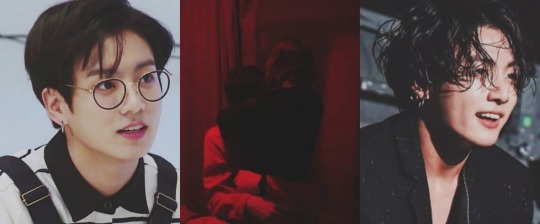
Pairing: Jungkook x Reader
Genre: SMUT. PWP. JUST READY TO GET DOWN AND DIRTY. THAT'S THE GENRE, YES.
Rating: 18+
Summary: Getting tutored by the school nerd sounds boring. Well that is, until you, tease him.
Word count: no idea
Warning: it's just porn without ANY plot 😩, or^l (f receiving), ti^^y sucking, fing^^^ng, p in v s^x, d^^ty talk if it counts, protected sex (cause Jungkook is a nerd, OFC HE'S SMART), there's some degra^^^^on, they do it on the table, he ties her hands up and idk what else 🤏🏻😩
(AGAIN it feels so awkward writing it with all the '^' but feeling awkward is better than Tumblr flagging you)
Tentative date: first week of October on my Patreon.

A:N: I'm actually very proud of coming up with the fic title because "deep learning" is actually a subset of machine learning, which is further a subset of artificial intelligence (which is what I study). But then "deep" learning can also have a double meaning if you think about it 🤔
Also, today only I was watching this movie review and the guy reviewing, commented how every movie has this thing about nerds wearing glasses and the moment you remove the glasses, BIPPITY BOPPITY BOO, they turn into the hottest guy ever. I nodded so hard, agreeing how illogical it is. And now look at me, doing the same 😔😫. (I too, have glasses btw)

This is a Patreon exclusive for the $8 tier.
Also, while we're at this, I would like to clear out something:
I know there will be people on Tumblr who will come across this post and probably get interested to read this drabble/one shot. Now, I know, this whole "patreon exclusive" thing might be a bummer for many. Trust me, I understand. However, I also cannot deny that there are people who have subscribed to my patreon (be it $5 tier or the $8 tier) and it's my duty and responsibility to make it worth it for them.
As of for people, who aren't/can't be on my Patreon, I just want you to know, I'll do my best to not make you all feel left out. There's loads of fics coming your way, so sit tight 💓
#jungkook x reader#Jungkook smut#Jungkook fluff#Jungkook au#Jungkook scenarios#Jungkook ff#Nerd Jungkook#Popular reader#Jungkook pwp#jungkook oneshot#Jungkook drabble#Fic: deep learning
149 notes
·
View notes
Text
i hate anything “ai” made on principle and that’s absolutely right but goddamn if those tiktoks of “ai” politician voiceovers playing minecraft weren’t funny
ive seen those posts explaining why it is politically problematic to meme trump/biden thus making their evils less acute. and i think theyre right! which makes it all the more unfortunate that i think those jokes are fucking hilarious. like theres truly not any bit on the internet more funny to me than playing with jpgs of american politicians like theyre paper dolls. truly i am no better than an 1880s reader of punch guffawing about the political cartoon
#artificial intelligence doesn’t exist it’s just machine learning#but you know what i mean#we are not immune to propaganda
13 notes
·
View notes
Text
"AI art" isn't made by AI, it's built with theft, and it has serious creative limits
AI art is the subject en vogue right now, at least in the circles that I run. And it's a complex thing - the technology itself is really just an evolution of the same machine learning that shows you banner ads on websites or decides which YouTube videos to recommend, but because it's called "AI" - "artificial intelligence" people get suckered into all kinds of very bad arguments about the nature of creativity and what really counts as plagiarism.
The tl;dr is this: human minds do not run on binary code, and these machine learning models are not AI, they are machine learning models. They are built with untold gigabytes of training data, consisting of photos and artwork that was used without permission, and however you want to slice that, that is theft. Being machine learning, they inherit the biases and limitations of the data they're trained on, and that puts hard limits on how creative it is possible to be using these tools and introduces a massive trend towards homogenization and the lowest common denominator.
There's a much longer historical precedent for what these tools represent, though: AI art is a form of automation, and you can find a much longer discussion of what that means and what the consequences are...
Right here:
youtube
1K notes
·
View notes
Note
Sorry for sending another ask so soon, but-

Don't be shy, spit the frog (italian way to say spill the tea)
I WANNA KNOWWWNWNFNGNG
okay i'm spilling some of the frogs, the tea, I WILL DESEMBUCHAR (word for spilling the truth in portuguese)
springtrap and bell (ballora) do know each other but from a certain distance (he's with the phantoms, and she belongs in the funtime crew). there's never this 'strange feeling' that they've met before because, literally... they never met!
the reason for them to be arguing a lot is due to remnant usage, whose importance is constantly brought up in the universe of BTC. springtrap uses them for his own selfish purposes, while bell is searching for more to help a friend stay active, amongst other reasons that involve the safety and entertainment of backstage residents.
bell is one of the very few bots that has directly confronted springtrap for his actions and usual mean behavior (sometimes on the same level of aggressiveness, other times a single glare is enough). she refuses to stay silent and reality downs on him that the stuff he's saying and doing is harming people.
they are basically the closest thing to human adults in this digitalized city of ghost children, with bell sacrificing a lot more of her time protecting those around her than springtrap (especially before they met)
bell is a chaotic, stubborn altruistic type paired up with self-destructive tendencies as a defense mechanism, considering she is painfully aware of her purpose as a child killing, remnant harvester robot. springtrap contrasts that part of her personality by being aloof, cautious and egocentric, and by pushing others away, acting as if the world revolves around his success in escaping UCN and becoming one with the entity. these contrasting traits often generate conflict, especially later on, when more secrets are revealed.
i like to think they help each other learn from their mistakes with this dumb, tom and jerry beef they have going on, but saying there's any hint of romantic love between them in the beginning feels objectively wrong (considering the amount of times springtrap has said hurtful and otherwise mean things to her).
both are competitive by nature. expect them to be counting how many remnants they caught in a single night.
the more they get to know each other the more they display their true selves, ofc. springtrap has a quieter, observant, genuinely concerned side where he listens instead of talking over people in that loud, cheeky and arrogant tone. bell seems to be a lot more of an anxious and impatient person, thoughts racing at all times and sometimes causing her to shut everyone out. black cat and orange cat behavior, respectively.
they often debate about human nature and the limits of artificial intelligence, and how they, two self-aware small pieces of a larger puzzle stuck in a digital dimension, fit inside these two labels. both are detached from either concepts, meanings losing importance the further they investigate. still, that doesn't stop them from displaying unwavering support whenever one is lost and afraid (works for both).
hand on shoulder, "are you alright?" glances, lending his cape, handmade gifts and favors. springtrap doesn't know how to be comforting, but he makes an effort.
he's more comfortable being secretive and working behind the curtains. events like claw machines suddenly functioning again, entire stages being repaired in a single night, random input of remnants in the electrical system, abandoned areas appearing tidy and organized... (they still wonder who's behind it all...)
when bell first showed up at the workshop for a simple repairs session, he took off her illusion disks and disabled the part of her programming that submitted to William Afton's orders. with that, the entity lost influence over her actions, and as a consequential effect, her eyes glow a bright yellow color, instead of the usual pink/purple hue.
compliments (lots of them), getting excited over the other's achievements, eagerly asking about their favorite topics. bell is that "saw this meme and thought of you" type of person.
scolding. both scold each other all the time. scolding as in "WHAT THE HELL WERE YOU THINKING" and "oh wow that's the greatest idea you've ever had. i'm surprised we aren't dead because of your absolute GENIUS of a plan (/loudly sarcastic)"
109 notes
·
View notes